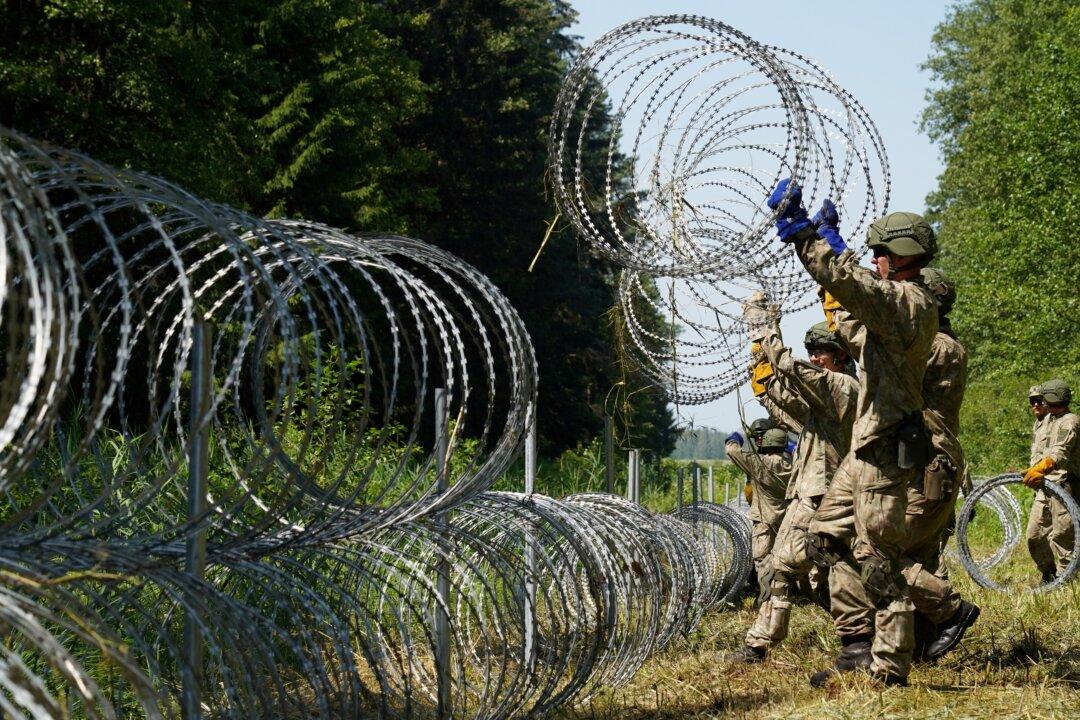Tensions continue to mount between Belarus, a key Russian ally, and NATO members Lithuania, Poland, and Latvia following a series of recent military deployments and border closures.
In an indication of rising tensions, the U.S. State Department this week urged American citizens in Belarus to leave the country “immediately.”





